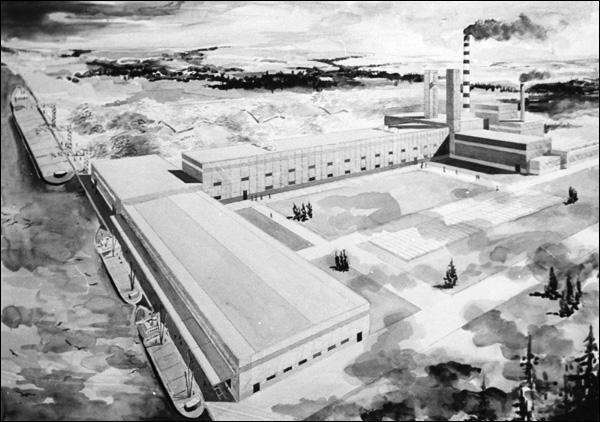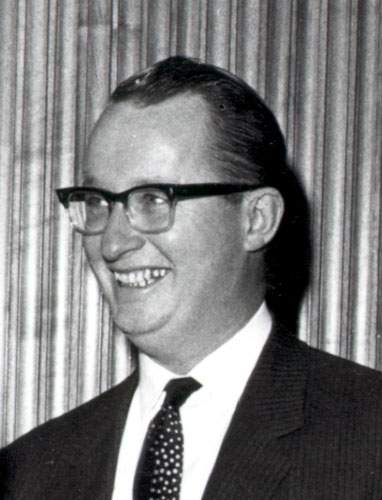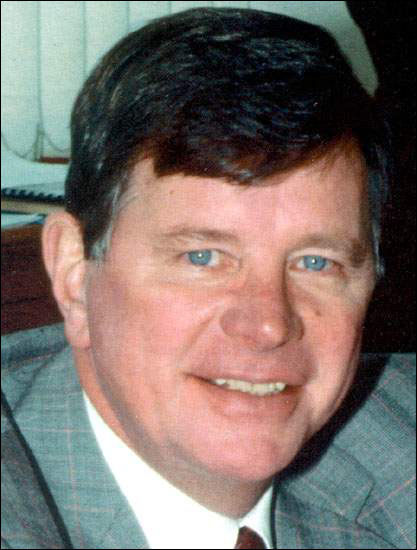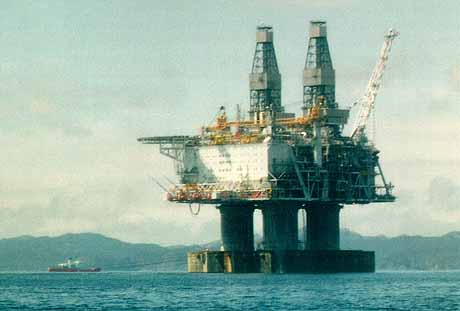Provincial Politics 1972-2001
The Progressive Conservative party led by Frank Moores came to power in 1972 with the promise of greater democracy in government. Moores undertook a much needed reorganization of the cabinet and government departments, so that ministers had greater control over their areas of responsibility than had been the case. Unfortunately, much of his government's attention was absorbed by the completion of large projects begun under the Liberals, such as the Come By Chance oil refinery and the Stephenville linerboard mill. Both these ill-advised projects cost the government a great deal of money and added to the public debt at a time when the growth of the provincial economy had slowed.

It became apparent after 1973 that the deal between Newfoundland and Hydro-Québec for the development of the Churchill Falls power development had also been ill-advised, since the profits from higher energy costs went to Quebec. The deal reinforced the sense that Newfoundland's governments had given away resources to foreign capitalists for a few short-term jobs.
Moores set out to compensate for Smallwood's perceived blunders through series of initiatives to gain greater control over natural resources.

The new government supported Ottawa's extension of fisheries jurisdiction over the continental shelf, for example, and encouraged the exploration of the Grand Banks for offshore oil.
The Peckford Government
These resource policies continued after 1979 when the Conservative leadership passed to A. Brian Peckford, who as Energy Minister in Moores' government, had been involved in setting provincial policy toward the oil and gas sector. The promise that this industry might enrich the province as it had Alberta, held out the hope that Newfoundlanders and Labradorians might, at long last, be masters in their own house.
Peckford's political persona exemplified several characteristics of Newfoundlanders who had grown up during the Smallwood era. He had a combative relationship with Ottawa, fighting for federal policies which would benefit his province. He tapped into a resurgent provincial nationalism and successfully won several elections by arguing that he was going to fight for a better deal within Confederation for Newfoundland and Labrador, and end the province's "inferiority complex". Responding to those Newfoundlanders and Labradorians who now questioned whether their predecessors had made the right decision in 1948, Peckford tried to create a stronger province, and supported those premiers who wanted to decentralise the Canadian state. His rhetoric became strident after 1984, when the Supreme Court of Canada decided that the seabed resources of the continental shelf belonged to the federal government. The bitterness caused by this decision was softened when the Government of Canada agreed to a joint federal-provincial management board, and to share oil and gas royalties.
The nationalist agenda had few concrete results. The electorate tired of Peckford's combativeness when it failed to achieve concrete results, and became dismayed by his government's subsidisation of an unsuccessful hydroponic cucumber farming business. The Sunday Express newspaper did much to bring this story to light and ultimately encouraged Peckford's resignation. The Progressive Conservatives had some successes during their period in power (1972-1989), but the economy remained weak and the province continued to experience high unemployment, out-migration and government deficits. Peckford's promise of a "better tomorrow" had not been realized.
The Liberal Revival
Much as the Progressive Conservatives had languished during heyday of Smallwood between 1949 and 1968, the 1970s and 1980s were a difficult time for the Liberal party. Smallwood's attempt at a comeback, heading a "Liberal Reform Party" in 1975, siphoned off votes from the Liberal party led by Edward Roberts, and helped reelect Moores. While many districts in rural Newfoundland and Labrador continued to elect Liberals after 1979, a succession of Liberal party leaders were unable to counter Peckford's populist rhetoric. But when the Peckford government's combative style failed to live up to the high expectations, and Smallwood's memory no longer plagued the Liberal party, the time for a change arrived.
Voters turned to the Liberals, now led by Clyde Wells, who seemed the opposite of Peckford, less passionate and more business-like. Elected in 1989, the new Liberal government immediately became embroiled in the controversy surrounding the proposals contained in the Meech Lake Accord to amend the Canadian constitution. Wells favoured a strong federal government and the equality of the provinces, and opposed a deal which would have granted the Province of Quebec a different constitutional status within the federation. On the whole, however, relations between the two levels of government were friendly compared to the Peckford years, even though the federal government cut transfer payments to the provinces.

In keeping with the more conservative political climate of the 1990s and the precarious fiscal position of the province, Wells embarked on a program of selling government-owned corporations and cutbacks within the civil service. The number of government employees was cut, and those that remained had to live with a wage freeze. Despite the anger of government workers, Wells retained the support of most voters. His unsuccessful attempt to "privatise" the Crown corporation Newfoundland Hydro, however, showed how his faith in private enterprise was out of step with Newfoundlanders' anxiety about losing control over their resources.
In 1992 the collapse of the cod fishery caused the federal government to shut down the industry that had sustained many Newfoundland communities from their beginnings. Fortunately, jobs associated with the development of the offshore Hibernia oil field, and the growth of fisheries for other species prevented the collapse of the economy, and with it government revenue - though special government programmes of compensation for the moratorium on fishing northern cod and out migration were also significant factors.

In 1996, Wells was replaced as Liberal leader and premier by Brian Tobin, a former federal MP and cabinet minister. Tobin maintained a close relationship with Ottawa, and his government benefited from a reviving fishery and offshore oil development. In the face of anxiety over the loss of control over resources Tobin earned much political popularity by his tough stand insisting that the nickel from the newly discovered ore deposit at Voisey's Bay be smelted and refined in this province. He was also an effective communicator who, in comparison to Wells, seemed more at ease in politics. Tobin used his popularity to push forward the desegregation of Newfoundland schools which had been organized along denominational lines since the mid-19th century. Tobin returned to federal politics in 2000, and in 2001 the Liberal party and government was led by Roger Grimes.
Opposition parties in post-confederation Newfoundland have often had difficulties maintaining momentum. After Peckford's resignation the Progressive Conservatives went through a succession of leaders, some of whom were ineffectual. In 2001, lawyer and businessman Danny Williams became leader of the Tories. He would later led them back into power.
While the sectarian divisions of Newfoundland politics that had existed for most of the 19th and 20th centuries are no longer dominant, the questions of economic development and the rural-urban divisions are still the source of political division. The long-term discrepancy between incomes in Newfoundland and the Canadian average, and the difficulties of having Newfoundlanders and Labradorians benefit from the development of their resources, also ensure that the constitutional arrangement of confederation will continue to be the subjects of political debate.




